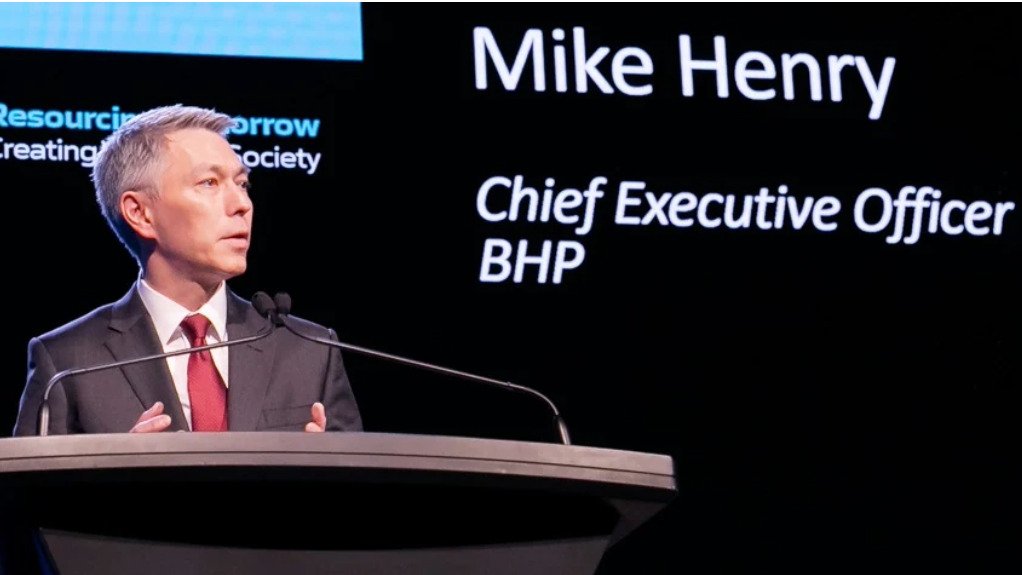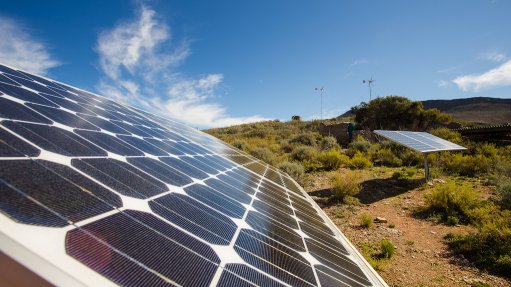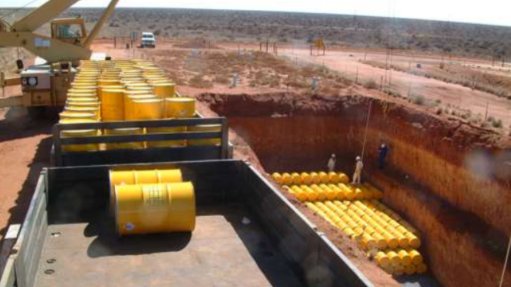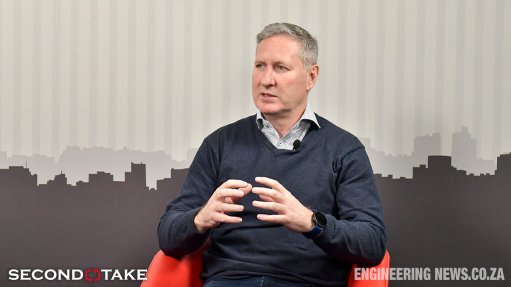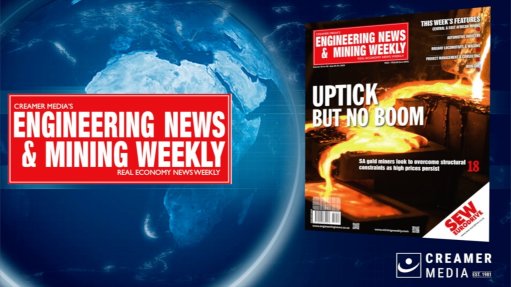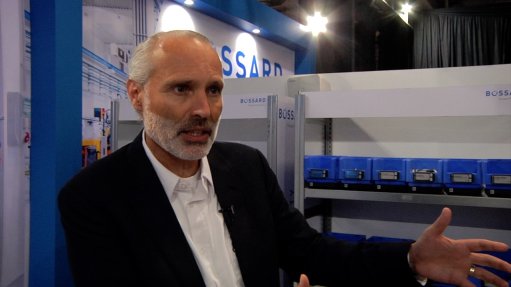Worst of inflationary wave over, says BHP CEO
Diversified mining group BHP CEO Mike Henry has expressed confidence in a more favourable economic outlook for 2024, declaring that the worst of the global inflationary wave is over.
BHP, which on Tuesday reported flat first-half underlying profit of $6.6-billion, is witnessing a shift towards a more balanced distribution of commodity demand globally.
“The inflation that has defined the last two years has peaked, driving more positive sentiment across financial markets, with potential flow-on effects to some exchange traded commodities,” said Henry.
The developments in the Red Sea, which has the potential of upending supply chains, were not expected to contribute to a reversal of the global trend towards decreasing inflation rates, he added.
Lower inflation, and eventually lower interest rates in the developed world, would help to establish more positive momentum in manufacturing sectors in the US and Europe.
BHP is also positive about the strong growth momentum in India, underpinned by health investment in steel-intensive sectors, and is more cautious about the outlook for China, citing uncertainty about how quickly pro-growth policies can flow through to the boarder economy.
Nevertheless, China demand remained “healthy”, despite weakness in housing, stressed Henry.
Labour costs, however, remained a key forward-looking inflationary concern, particularly in Australia, where aggregate wage outcomes were “increasingly disconnected from underlying productivity performance”.
This concern was amplified by regulatory reform under way in Australia, which would add to labour costs and reduce the international competitiveness of the Australian economy.
The global miner is among a number of resources giants and employer groups fighting the government’s proposed “same job same pay” legislation, which would require employers to pay labour hire workers at least the same pay as direct employees doing the same job.
The nickel and lithium sectors, in particular, were under "significant pressure" owing to market conditions and fierce global competition, said Henry.
"At the same time as the need to be globally competitive has sharpened, we’ve seen changes made at both the state and federal levels that increase costs to business without any commensurate increase in productivity, thereby dragging Australian competitiveness down. These include the sharply increased coal royalties in Queensland and federal industrial relations policies."
". . . it’s essential that the right industrial relations and fiscal settings are in place to support the sector’s ability to compete, and win, in global markets,” he added.
Amid difficulty in the nickel industry, BHP has recognised a noncash impairment of $2.5-billion at its Western Australia nickel business.
Excessive rapid growth of Indonesian supply has resulted in the nickel price falling by about 50% over the past year and BHP estimates that as much as half of global production is loss-making.
The impairment of Western Australia Nickel, coupled with a $3.2-billion charge related to the Samarco dam failure in Brazil, have resulted in a sharp drop in first-half attributable profit to $0.9-billion.
Half-year revenue increased by $1.5-billion, owing to higher iron-ore and copper prices, and partially offset by its New South Wales Energy Coal business, which realised sharply lower prices in the six months.
BHP reported a 5.4% increase in unit costs across its major assets in the six months ended December 31, 2023, which compared well with the global inflation rate of 6.3% experienced across the miner’s operating jurisdictions during the 2023 calendar year.
An interim dividend of 72c a share was declared for a total of $3.6-billion.
Saranga Ranasinghe, Senior analyst at Moody’s Investors Service, said that BHP's results were in line with previous expectations.
"EBITDA improved marginally compared with the previous period despite higher operating costs as stronger iron-ore and copper prices supported revenue growth."
Commenting on the exceptional items recorded during the period, Ranasinghe said that uncertainty remained over the level of support BHP would need to provide to Samarco and potential payments the group might need to make.
"Given the provisions already taken and the group’s strong liquidity profile, we currently expect these future costs to be manageable within the rating parameters."
Comments
Press Office
Announcements
What's On
Subscribe to improve your user experience...
Option 1 (equivalent of R125 a month):
Receive a weekly copy of Creamer Media's Engineering News & Mining Weekly magazine
(print copy for those in South Africa and e-magazine for those outside of South Africa)
Receive daily email newsletters
Access to full search results
Access archive of magazine back copies
Access to Projects in Progress
Access to ONE Research Report of your choice in PDF format
Option 2 (equivalent of R375 a month):
All benefits from Option 1
PLUS
Access to Creamer Media's Research Channel Africa for ALL Research Reports, in PDF format, on various industrial and mining sectors
including Electricity; Water; Energy Transition; Hydrogen; Roads, Rail and Ports; Coal; Gold; Platinum; Battery Metals; etc.
Already a subscriber?
Forgotten your password?
Receive weekly copy of Creamer Media's Engineering News & Mining Weekly magazine (print copy for those in South Africa and e-magazine for those outside of South Africa)
➕
Recieve daily email newsletters
➕
Access to full search results
➕
Access archive of magazine back copies
➕
Access to Projects in Progress
➕
Access to ONE Research Report of your choice in PDF format
RESEARCH CHANNEL AFRICA
R4500 (equivalent of R375 a month)
SUBSCRIBEAll benefits from Option 1
➕
Access to Creamer Media's Research Channel Africa for ALL Research Reports on various industrial and mining sectors, in PDF format, including on:
Electricity
➕
Water
➕
Energy Transition
➕
Hydrogen
➕
Roads, Rail and Ports
➕
Coal
➕
Gold
➕
Platinum
➕
Battery Metals
➕
etc.
Receive all benefits from Option 1 or Option 2 delivered to numerous people at your company
➕
Multiple User names and Passwords for simultaneous log-ins
➕
Intranet integration access to all in your organisation



